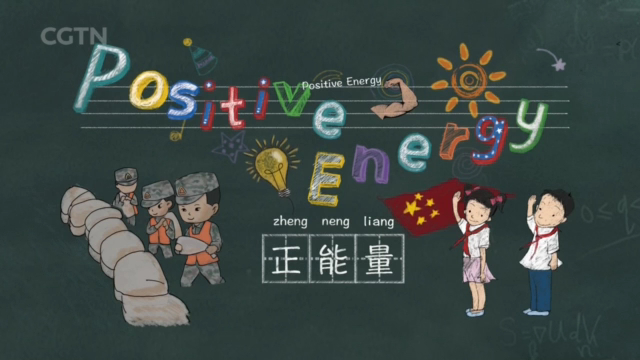
21:24, 31-Dec-2018
Chinese Terminology: Positive energy
Updated
21:20, 03-Jan-2019
01:51

And now, it's time for China 24's special series - 'Chinese Terminology'. We try to give you a sense of what China's reform and opening up process is all about through popular local phrases. Today, our Jonathan Betz looks at the term 正能量 or 'positive energy'.
In the 1930s, British physicist Paul Dirac established his Quantum Electrodynamics theory, in which he introduced the term positive energy.
But we're not talking about physics today. In China, positive energy has become a buzz word that can almost be used to describe anything good. The physics term was first transplanted into the social science field by British writer Richard Wiseman in a 2012 book, explaining his psychological methods that help people get out of low ebbs in life.
During the opening of the London Olympics, the phrase found its way into China's social network – used to describe actions that have positive influence to society.
But it was President Xi's quote of it in a 2013 speech that saw it quickly spread and elevated into the realm of national governance.
For example, anything orderly and transparent, or anything that follows justice and rule of law can be described as positive energy; while corruption, unfairness, fraud, and indolence are negative energy.
For individuals, honesty, happiness, and resilience are positive energy; while pessimism and moral decadence are negative energy. A positive person always appreciates and looks ahead while a negative person always complains and turns backward. Life will not always be easy. The question is how do we deal with it? I think the answer is pretty clear now.

SITEMAP
Copyright © 2018 CGTN. Beijing ICP prepared NO.16065310-3
Copyright © 2018 CGTN. Beijing ICP prepared NO.16065310-3